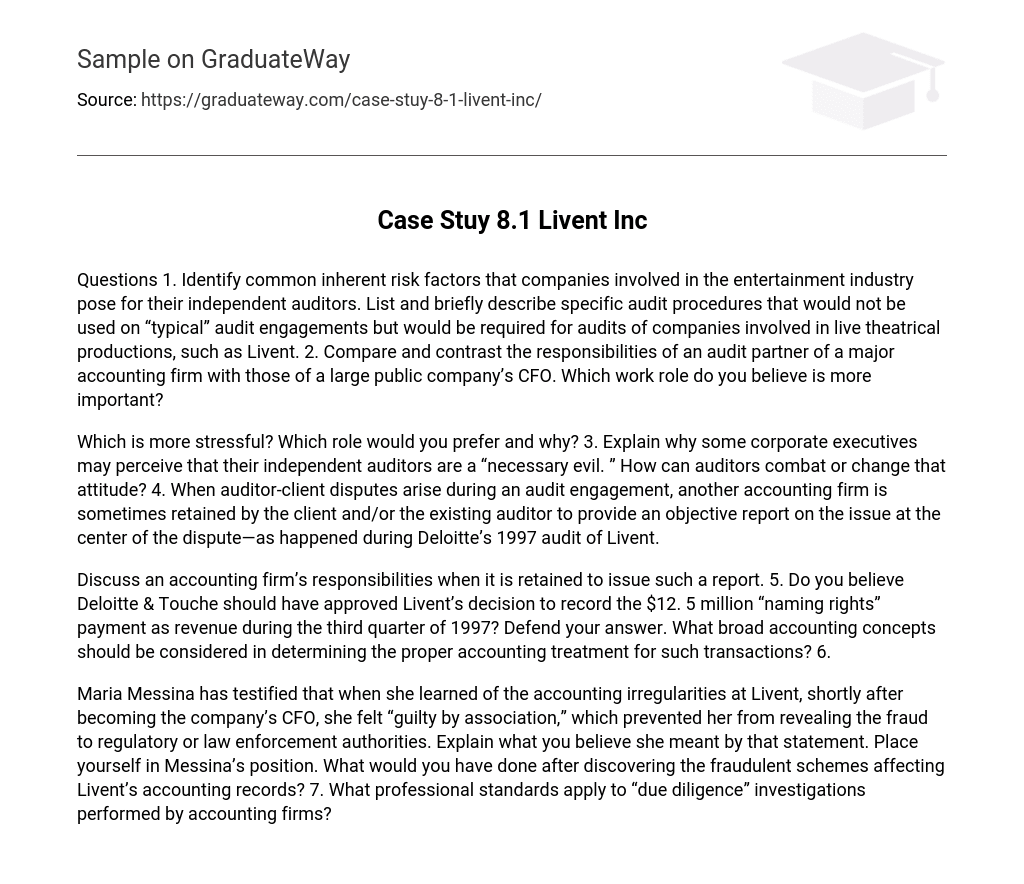Questions 1. Identify common inherent risk factors that companies involved in the entertainment industry pose for their independent auditors. List and briefly describe specific audit procedures that would not be used on “typical” audit engagements but would be required for audits of companies involved in live theatrical productions, such as Livent. 2. Compare and contrast the responsibilities of an audit partner of a major accounting firm with those of a large public company’s CFO. Which work role do you believe is more important?
Which is more stressful? Which role would you prefer and why? 3. Explain why some corporate executives may perceive that their independent auditors are a “necessary evil. ” How can auditors combat or change that attitude? 4. When auditor-client disputes arise during an audit engagement, another accounting firm is sometimes retained by the client and/or the existing auditor to provide an objective report on the issue at the center of the dispute—as happened during Deloitte’s 1997 audit of Livent.
Discuss an accounting firm’s responsibilities when it is retained to issue such a report. 5. Do you believe Deloitte & Touche should have approved Livent’s decision to record the $12. 5 million “naming rights” payment as revenue during the third quarter of 1997? Defend your answer. What broad accounting concepts should be considered in determining the proper accounting treatment for such transactions? 6.
Maria Messina has testified that when she learned of the accounting irregularities at Livent, shortly after becoming the company’s CFO, she felt “guilty by association,” which prevented her from revealing the fraud to regulatory or law enforcement authorities. Explain what you believe she meant by that statement. Place yourself in Messina’s position. What would you have done after discovering the fraudulent schemes affecting Livent’s accounting records? 7. What professional standards apply to “due diligence” investigations performed by accounting firms?





